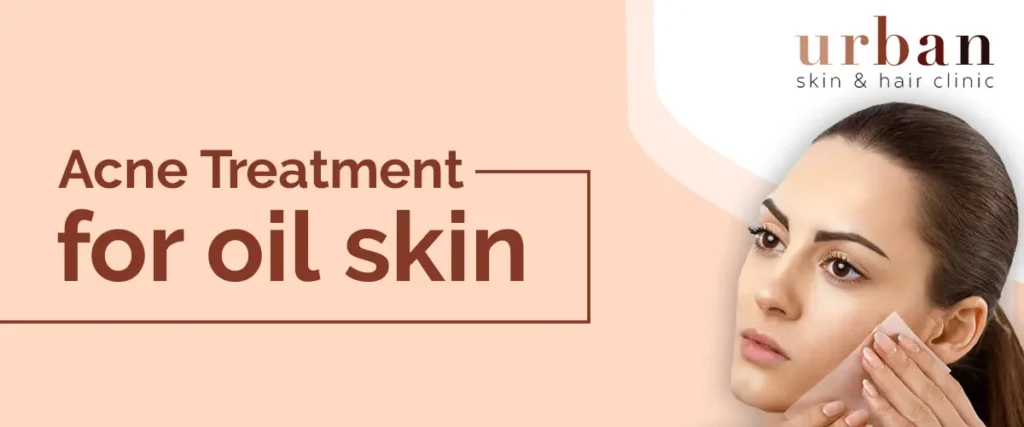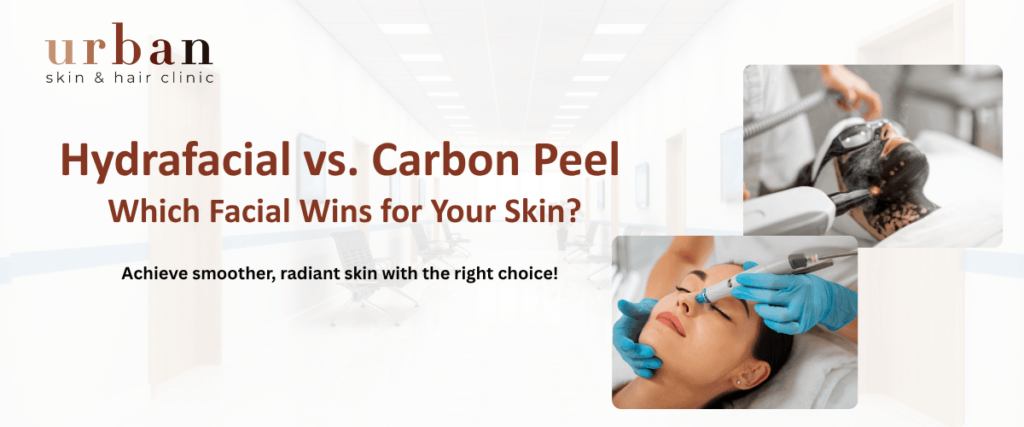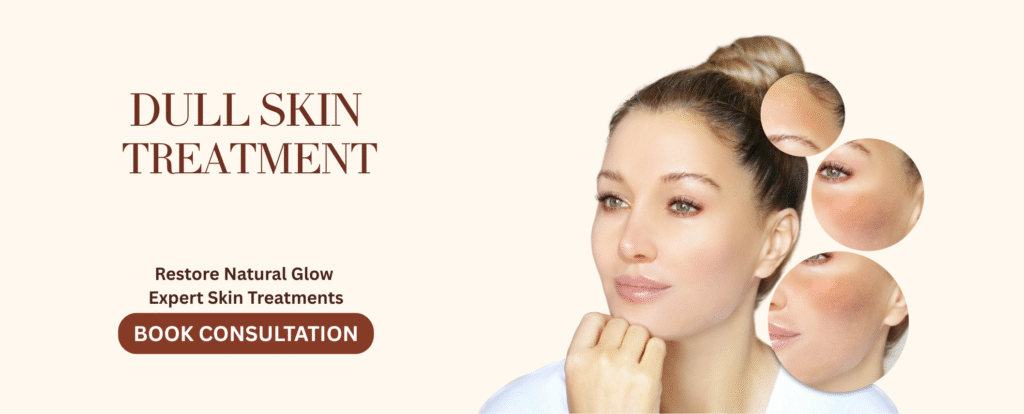Acne is a skin condition experienced by many people. While the breakouts themselves can be frustrating, the marks they leave behind can linger, sometimes for months, or even become permanent. These marks are often referred to as acne scars, and they are a common concern. Understanding what causes these scars and the various options available for acne scar treatment and acne scar removal is the first step towards smoother skin.
Acne Scars: More Than Just Marks
When acne lesions, such as red bumps or pus-filled pimples, heal, they can sometimes damage the skin tissue. This damage can affect the skin’s natural healing process, particularly its ability to produce collagen. Collagen is the main protein that provides structure and support to the skin.
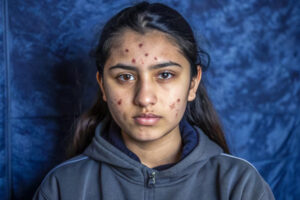
If the skin produces too little collagen during healing, it can result in a depressed or indented scar, where the skin surface is lower than the surrounding skin. Conversely, producing too much collagen can lead to raised scars. Severe forms of acne, like the painful, pus-filled bumps called nodules or cysts that occur beneath the skin’s surface, are more likely to result in permanent scarring. Picking or squeezing acne lesions can also increase the risk of permanent scarring because it further irritates the skin and damages the underlying tissue.
It’s also important to distinguish true acne scars from the flat purple, red, or brown marks that often remain after a blemish fades. These are usually just temporary discoloration, known as post-inflammatory hyperpigmentation, and they typically fade on their own over a few months. True acne scars, however, generally require intervention to improve their appearance. If you’re unsure whether your marks are scars or discoloration, consulting a healthcare professional can help.
Natural Product Options for Acne Scars
For those looking for initial steps or intensive acne scar treatment options, some natural products are often explored. It’s important to manage expectations, as the sources suggest that proven natural remedies specifically for established acne scars are very few. However, compared to numerous expensive creams that may also lack strong evidence, trying natural options can be a less costly approach with minimal side effects. The sources indicate that exploring these options doesn’t hurt to try.
Based on the information provided, here are a few natural products with properties that may offer some potential benefits related to skin healing and appearance:
Black Seed Oil
Known scientifically as Nigella sativa, this is a common medicinal plant. Black seed oil possesses anti-inflammatory properties. Studies suggest it can speed up and improve the process of wound healing. It may also potentially help even out skin pigmentation or help prevent acne breakouts from occurring in the first place.
Rosehip Seed Oil
This oil is widely available and is considered safe to apply directly to the skin. While research on its effects specifically on acne scars is limited in the provided sources, one study indicated that rosehip seed oil could be used to treat scars, specifically surgical scars. In that study, researchers found that applying the oil twice daily reduced the appearance of both the scars and associated discoloration. This positive effect on surgical scars suggests it could potentially be similarly useful for improving the look of acne scars.
Honey
Honey has been used for many medicinal purposes throughout history, including treating wounds. Research indicates that honey can speed up the healing process of wounds. By promoting faster healing, honey might potentially reduce the likelihood or severity of scarring forming in the first place.
While these natural options might offer some support for skin health and healing, they are unlikely to provide dramatic acne scar removal results for established, noticeable scars based on the available evidence. For more significant improvement, professional intervention is often necessary.
Professional Treatments for Acne Scars
For the most effective acne scar treatment and acne scar removal, consulting a dermatologist or trained healthcare professional is typically recommended. These professionals can assess your specific type of scars and skin and develop a personalized treatment plan.
It’s worth noting that treatment for acne scars usually begins after your active acne is under control and you are using medication to prevent new breakouts. This is because some scar treatments, when used alongside certain acne medications, can lead to unwanted side effects.
Here are some common professional treatment options detailed in the sources that can be explored for acne scar treatment and acne scar removal in places like Pune:
Chemical Peels Treatment
Carbon peel treatment involves applying acidic solutions to the skin to exfoliate and remove damaged outer layers. This process stimulates the skin’s natural healing response and encourages the production of collagen and elastin. Chemical peels are available in mild, medium, or strong strengths, and your dermatologist will determine the most suitable option for your skin. Milder and medium-depth peels may require multiple sessions to achieve the desired results. Chemical peels can be beneficial for a wide range of skin tones when performed by a trained dermatologist. They are often used for superficial scars and post-acne hyperpigmentation. Specifically, Trichloroacetic acid (TCA) peels are considered effective for acne scarring, with a technique called TCA CROSS being particularly used for treating ice-pick scars. It is important to follow pre-peel priming instructions and use sun protection before undergoing a chemical peel.
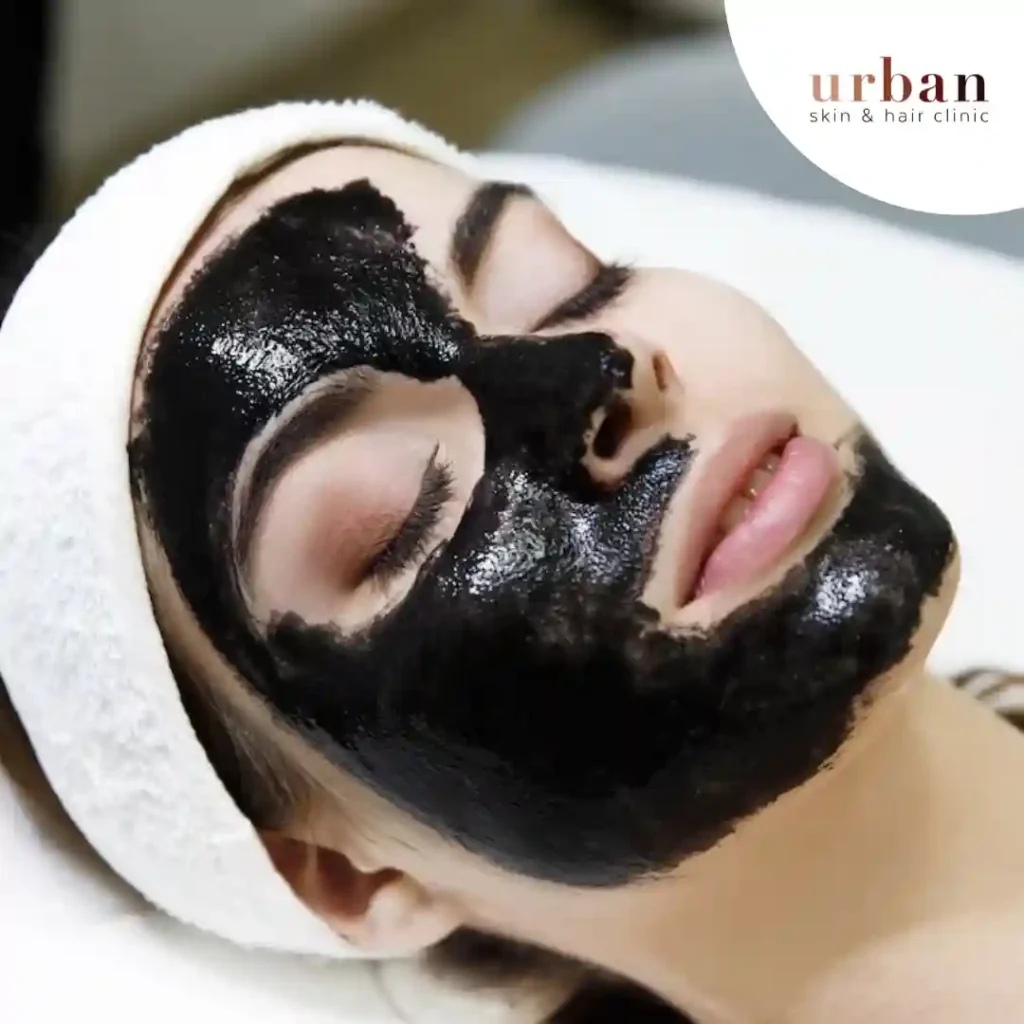
Microdermabrasion
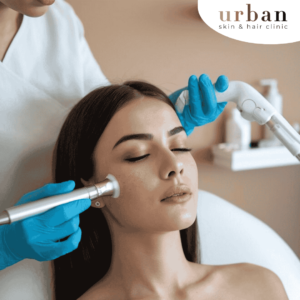
Microdermabrasion is a skin resurfacing procedure that mechanically removes the outermost layer of the skin. It aims to smooth the skin’s surface and improve the appearance of minor scarring. According to the sources, microdermabrasion has a Level II, B evidence rating for treating mild to moderate scars.
Microneedling
Also known as collagen induction therapy, this procedure involves using a device with tiny, sterilized needles to create controlled micro-punctures in the skin. These tiny injuries trigger the skin’s natural healing process, leading to increased collagen production. Microneedling can be used on all skin types. Patients can often see noticeable improvement after just a few sessions. Microneedling has a high level of evidence (Level I, A) for the treatment of mild to moderate acne scars. For enhanced results, micro-needling can be combined with Platelet-Rich Plasma (PRP) therapy, which also has a Level I, A evidence rating when used with derma roller or fractional lasers.
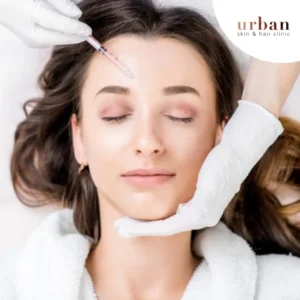
Laser Resurfacing
Laser treatments use targeted light energy to improve the appearance of scars. Ablative lasers remove the very top layer of skin, while non-ablative lasers heat the underlying layers to stimulate collagen production without removing the surface. Laser resurfacing can often result in faster healing times compared to some other resurfacing methods. Various types of lasers are used for scar treatment.
Fractional CO2 and Erbium
YAG lasers have demonstrated a high level of evidence (Level I, A) for treating mild to moderate scars. The results achieved with laser resurfacing can potentially be permanent. However, caution is advised when using some types of lasers on darker skin tones due to a higher risk of scarring and unwanted pigmentation changes.
Subcision
This is a minor surgical procedure where a professional uses a needle or cannula to carefully break up the fibrous bands that tether depressed scars to the underlying tissue. Releasing these bands allows the scar to lift and become less noticeable. Subcision is a recommended treatment for all types of depressed scars and has a Level II, B evidence rating. The sources also mention that subcision can be combined with other treatments, such as fractional radiofrequency or microneedling, potentially leading to better overall results.
Punch Techniques
For more severe acne scars, particularly Grade 4 scars that may not respond well to resurfacing methods, punch techniques can be employed. These involve surgically treating the individual scar. Punch excision involves removing the scar tissue entirely and stitching the resulting wound closed. Punch elevation lifts the base of a depressed scar to the level of the surrounding skin.
Dermal Fillers
Injectable substances, known as dermal fillers, can be used to temporarily fill depressed acne scars, raising the skin surface. Various types of fillers are used for this purpose, including hyaluronic acid, poly-L-lactic acid, polymethyl methacrylate, and Calcium Hydroxyapatite. The evidence levels supporting the use of different fillers vary, with some having Levels I A and II B evidence.
Surgical Revision
In cases of very severe scarring, sometimes the scar tissue itself is surgically removed, and the area is stitched together to create a smaller, less noticeable scar.
Combination Treatments
The sources emphasize that combining different professional “acne scar treatment” modalities often provides better efficacy than relying on a single treatment method alone. A dermatologist can create a tailored plan combining procedures best suited for your specific scar types.
Prevention: The Best Approach to Scarring
While many effective acne scar treatment and acne scar removal options exist, the most effective way to deal with acne scars is to prevent them from forming in the first place.
Taking steps to treat active acne early and effectively can significantly reduce the likelihood of severe breakouts that often lead to scarring. Avoiding the temptation to pick, pop, or squeeze pimples is crucial. This habit can irritate the skin, worsen inflammation, and damage the underlying tissue, greatly increasing the chances of permanent scarring.
Conclusion
Acne scars, while often permanent without intervention, do not have to be a lifelong concern. From exploring the potential benefits of natural products like black seed oil, rosehip seed oil, and honey, to undergoing advanced professional procedures like chemical peels, micro needling, and laser resurfacing, there are many options available for acne scar treatment and acne scar removal. The key is to understand the nature of your scars and consult with a qualified professional, particularly if you are in a region like Pune where specialized clinics offer these services. By seeking expert advice and exploring the right treatment path, you can significantly reduce the appearance of acne scars and improve your skin’s texture and appearance.



